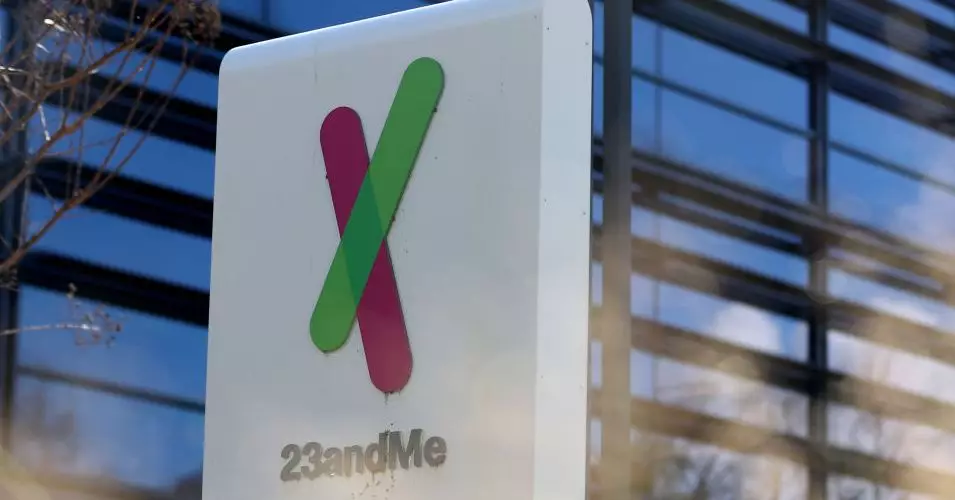In the whirlwind of Silicon Valley’s tech landscape, few stories are as compelling as that of 23andMe. Once celebrated as a revolutionary platform for personal genetic testing and boasting a staggering valuation of $6 billion, the company is now grappling with the dismal consequences of mismanagement and the precarious nature of privacy in the digital age. With its recent filing for Chapter 11 bankruptcy and the resignation of CEO Anne Wojcicki, the narrative of what was once considered a bold step into consumer genomics has shifted towards uncertainty and caution.
The fascination that 23andMe ignited by offering consumers insights into their genetic ancestry and health concerns brought it both acclaim and scrutiny. As it approaches a potential sale, the question looms: what happens to the priceless genetic data it holds? Not only does the company possess intimate details about millions of individuals, but the very essence of privacy and control over such sensitive information hangs in the balance.
Data Privacy Dilemmas in a Corporate Exodus
For customers of 23andMe, the potential transfer of data to an unknown new owner raises significant privacy concerns. Advocates for consumer rights have long called for stricter regulations to govern genetic data, warning that loss of control over such personal information could lead to exploitative practices. California Attorney General Rob Bonta has been vocal about consumer rights, urging Californians to recognize their legal standing to demand deletion of their data. However, consumers outside California find themselves in a murkier landscape regarding their privacy rights.
A diversified patchwork of laws, such as Washington state’s My Health My Data Act and the European Union’s General Data Protection Regulation (GDPR), provide some degree of protection, but most 23andMe customers, especially those in the U.S., lack robust safeguards. The troubling reality is stark: genetic information, which has immense personal and cultural implications, could be mishandled or misused if data practices aren’t tightly controlled during the transition of ownership.
Experts Weigh In: A Harrowing Outlook
As experts analyze the implications of 23andMe’s abrupt turn, an unsettling consensus emerges. Andrea Downing, a cofounder of The Light Collective, voiced pivotal concerns over the absence of a comprehensive federal privacy law in the United States, particularly with regards to health data. The patchwork of legal protections nationwide leaves consumers vulnerable and underscores the urgent need for legislative reform. “We continue to evolve our understanding of how genetic information has value but also has unique vulnerability,” Downing stated, articulating a perspective that amplifies the concerns of countless individuals navigating the complexities of data privacy.
Adding to the anxiety, John Verdi, of the Future of Privacy Forum, indicated that the obligations concerning data previously collected will not vanish with new ownership. Despite legal expectations, the actual safeguarding of data during corporate transitions is often riddled with uncertainties. Longtime privacy advocate Kenn White added his critical voice, suggesting that the veracity of privacy policies may not hold much weight in practice, particularly where new stakeholders are involved.
The Individual’s Role in Protecting Genetic Information
Amidst these developments, it’s vital for individuals to take proactive measures in safeguarding their genetic data. 23andMe customers should not only be vigilant but also conscientious regarding their privacy decisions. The recommended course of action includes downloading all relevant genetic data and initiating formal requests for its deletion—a technical process, but one that is crucial.
Step-by-step guidance on how to navigate the data deletion process is essential for consumers. By logging into their account, they can find the settings required to delete data and manage their genetic footprint. In an age of increasing digital surveillance and commodification of personal information, these actions serve as both necessary precautions and empowering steps toward asserting control over one’s genetic legacy.
In light of 23andMe’s precarious situation, it becomes evident that the current state of genetic testing and data ownership is fraught with challenges and ambiguities. The unfolding circumstances serve as both a cautionary tale and a rallying cry for enhanced protections in the digital age, reminding all of us of the fragile line between innovation and individual privacy. As we navigate this evolving landscape, the conversation around genetic data rights must become a priority, elevating our collective vigilance against compromising our most intimate information.

